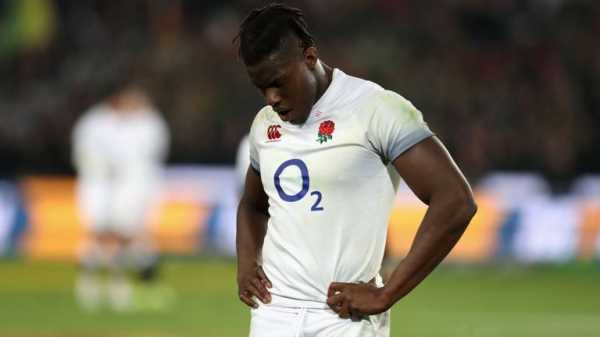
It’s all or nothing for England in Bloemfontein on Saturday with regards to their Test series in South Africa, live on Sky Sports Action, as only victory will keep them alive having lost the first Test last week.
Having forged a 24-3 lead during the first half, England proceeded to concede five tries and 42 points in Johannesburg as they ultimately succumbed 42-39.
But what do they need to change to make sure defeat doesn’t happen again? Here’s five things they must do if they are to taste success and level the series…
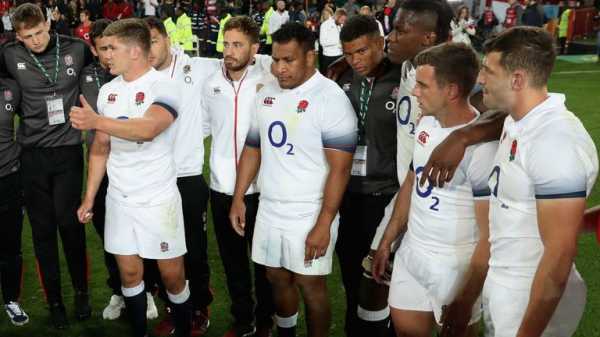


South Africa vs England
June 16, 2018, 3:00pm
Live on

Get Sky Sports Get a Sky Sports pass
Breakdown woes
In this respect, it was a case of the same old issues for England as they thoroughly lost another breakdown battle.

During the Six Nations, defeats to Scotland and France in particular comprehensively exposed Eddie Jones’ side’s weakness on the ground, and in Ellis Park they failed to rectify it once again.
South Africa No 8 Duane Vermeulen utterly ruled this area above all the other backrows on the park, with England flankers Chris Robshaw and Tom Curry anonymous and No 8 Billy Vunipola failing to impose himself too.
The breakdown failings were so stark, personnel changes appeared badly required. Brad Shields has come into start at blindside ahead of Robshaw for his Test debut, with Joe Launchbury recovering from injury to take his place at lock. But England need far more than one man to change things.
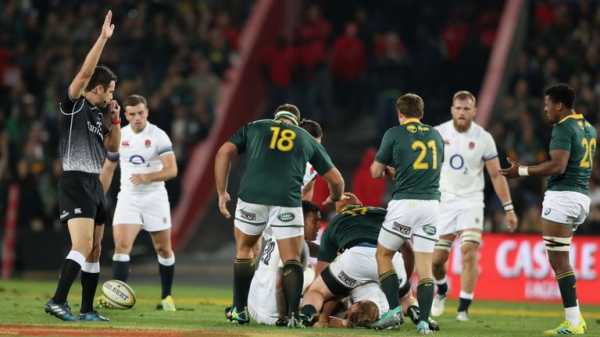
Sam Simmonds, Nathan Hughes, Mark Wilson and Ben Earl are other backrow options, but it remains to be seen if Jones will hand out further opportunities during this Test series.
Even among all those names, England still lack an influential and forceful openside, however, and if they are to gain the upperhand for the majority in Bloemfontein on Saturday, the whole side will need to be more accurate, physical and clinical at the breakdown – perhaps the most vital of aspects to any fixture.
Senseless ill-discipline
Another major thorn in the side of this England group has been their failure to adapt and get on side with referees during matches.
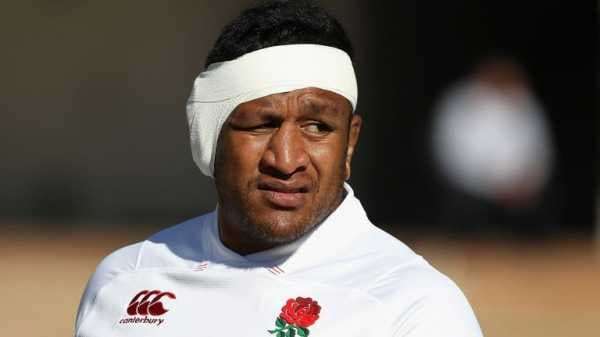
More than this though, the likes of Maro Itoje and Mako Vunipola have displayed a propensity for giving away cheap and needless penalties.
Such play loses momentum, possession and – most crucially – territory, from which you invariably invite pressure onto yourself and concede points.
By the close of play last week, England had conceded 14 penalties – nine of which came in defence – plus a yellow card to Vunipola for a late charge on scrum-half Faf de Klerk.
During the Six Nations, England conceded 13 penalties in defeat at Scotland, another 13 in a loss at home to Ireland and 17 in defeat at France. Such high numbers make it almost impossible to win Test matches at this level.
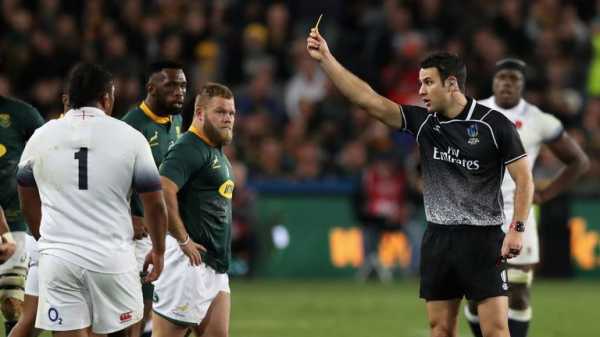
They have to be squeaky clean on Saturday and attempt to keep their penalty total below double figures. From there, they are likely to find themselves in tighter games.
Faf’s nippy influence
We’ve mentioned his name already, but the star man by far and away in the first Test was Springbok scrum-half De Klerk.
The Sale Sharks man’s speed of ball and foot saw him run amok around the fringes to shattering consequences from an England defensive point of view.
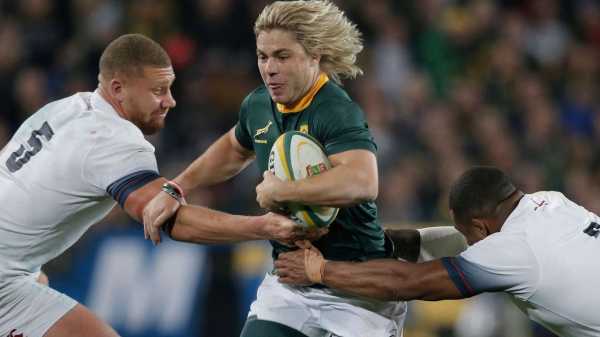
5:15 De Klerk was outstanding for the Springboks and was someone England failed to get a handle on last week
Itoje and Vunipola attempted to (illegally) halt his influence, but Jones’ charges utterly failed to slow down the South Africa ball, which De Klerk whipped away at such a pace it was near undefendable for large phases.
The scrum-half’s snipes, half-breaks and sharp passing should have been quelled far earlier. Therefore, as well as improving at the breakdown, they must pay attention to defence down their short side, where they were ruthlessly and repeatedly exploited and exposed by the nippy nine.
Individual blunders
One thing Jones would not have been able to legislate for were the individual mistakes which allowed South Africa back into the game.
At 24-3 ahead, aberrations from Itoje and Elliot Daly allowed De Klerk and S’bu Nkosi to markedly reduce the deficit and put a wildly different spin on proceedings.

Itoje – not for the first time last week – seemed more pre-occupied with laying a physical marker down on De Klerk than defending him, and so the scrum-half ducked under his all-or-nothing challenge to score the Springboks’ first try.
Nine minutes later and Nkosi was in for their second when full-back Daly came across but failed to dab the ball down in his in-goal, offering up a gift for the Springbok wing on debut. By half-time, South Africa, remarkably, led 26-24.
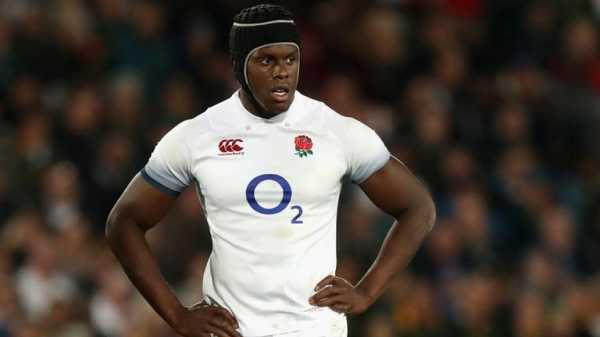
Though individual mistakes cannot be legislated for, however, the mental state of the England team is something that perhaps could be worked upon.
It appeared as if even the men on the pitch believed they had the game won at 24-3 ahead. They can’t let that happen again, and mistakes of such monumental proportions will have to be avoided too.
Kicking game?
If there was one area in which England looked likely to try and expose, it was the perceived aerial weakness of the South Africa back-three.
Though outstanding on the day, Bok full-back Willie Le Roux is not famed for his aerial ability, while wings Nkosi and Aphiwe Dyantyi were both on debut, and surely ripe for some aerial bombardment?
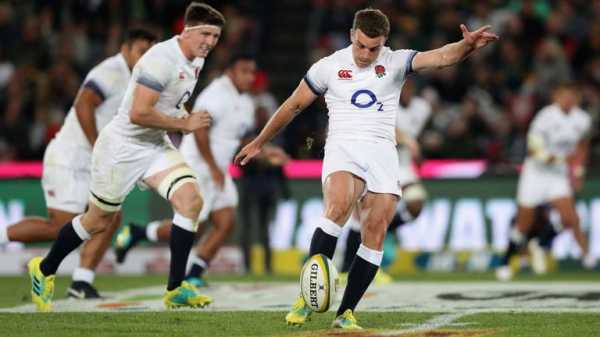
Yet, England largely stayed away from such a tactic. But with the boots of Owen Farrell, George Ford, Henry Slade and Daly all on the pitch, plus the aerial strengths of Mike Brown and Daly, it is a move which might have brought them some change.
Will they employ more of a kicking game in Bloemfontein on Saturday?
Watch Saturday’s second Test between South Africa and England live on Sky Sports Action and Main Event from 3pm.
Also See:
Sourse: skysports.com






